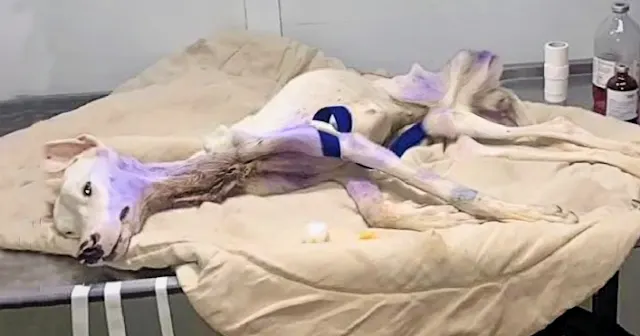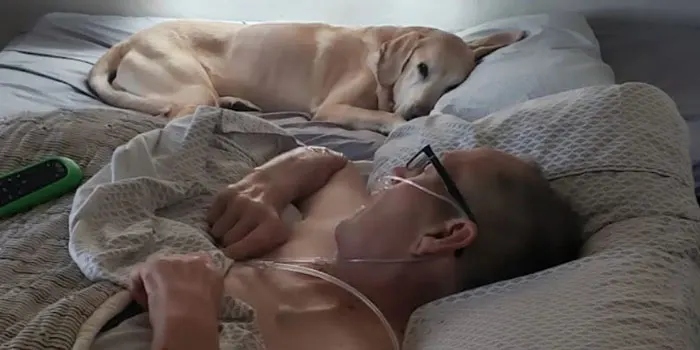When Maria, a conscientious housekeeper at a tiny rural motel, started her shift, the sun had just begun to rise, bathing the tranquil hamlet in a gentle, golden light. She had been employed at the motel for many years, giving careful attention to the cleanliness of each room to make sure every visitor was made to feel at home and at ease. She was familiar with the routine: make the beds, tidy the bathrooms, and change the towels. However, Maria was unaware that her routine was going to be upended by a revelation that would follow her for days as she made her way to Room 12.
Someone had checked in late the night before and was staying in room 12. The management of the motel had remarked that the visitor appeared calm and collected, nothing unusual. However, because checkout time was drawing near, Maria believed the guest had already left when she knocked on the door that morning and got no response. With her master key in hand, she opened the door and pushed it open, expecting to see the standard contents: a few soiled towels, a bed that needed to be made, maybe a forgotten item or two.

Maria was instead abruptly stopped in her tracks by what she came upon. The air in the room was heavy with anxiety, and it was deathly quiet. The moment she walked in, she saw that the bed was unmade and the blankets were twisted and tangled, as though the previous occupant had departed quickly. A practically empty whisky bottle and a jumble of empty medication bottles rested on the nightstand. A wave of fear passed over Maria, and her heart started to speed.
Then she noticed it: a hurriedly scrawled letter that was placed on the pillow. Though written in a trembling hand, the message was heartbreaking and obvious. The visitor had picked this peaceful, modest hotel room as the place to end it all since they were suffering from acute depression and felt completely alone in the world. The letter served as a last-ditch request for comprehension and pardon.

Maria shuddered and glanced around the room, her gaze finally resting on the slightly ajar bathroom door. Her steps were heavy as she approached it, filled with a sense of dread. As she pushed the door open, she discovered the visitor dead, a sorrowful body slumped in the corner with the aftermath of their last minutes all around them.
As the scenario became real to Maria, her breath seized in her throat. She hurriedly with her hands shaking backed out of the bathroom. Though she had experienced hardships in the past, nothing could have equipped her for this. The guest’s loneliness and hopelessness were evident in the room, and Maria couldn’t help but feel intense sorrow for the individual who had passed away there by themselves.

Maria hurried to notify the manager at the motel’s front desk, knowing she had to move fast. After calling the police, the motel was overrun with officers and paramedics in a matter of minutes. They responded quickly, yet with the gravity that accompanies handling a situation this sad. Maria stood off to the side, her heart heaving with sorrow for the stranger whose suffering she had never met but was now vividly aware of.
Maria’s melancholy persisted in the days that followed, refusing to leave her chest. She wondered why the guest had chosen to end their life in such a desolate spot and what had brought them to that point every time she thought about them. She kept going over the discovery in her head, plagued by visions of the note, the empty bed, the whisky bottle and the bathroom door.

Maria turned down the motel management’s offer of time off to recuperate from the shock and carried on with her duties. She started using cleaning the rooms as a kind of therapy, something to occupy her time and prevent her from thinking too much about the tragedy she had seen. However, she couldn’t help but get a shiver whenever she went into Room 12, a reminder of the life that died there far too soon.
The complete history of the guests—their identity, origins, and the circumstances that led them to such hopelessness—was never revealed to Maria. However, their terrible demise left an impression on her, serving as a reminder of the hidden hardships that a great deal of people face and that are frequently invisible to those around them. She became more understanding and cognisant of the struggles others could be going through in silence as a result.
Over time, Maria’s recollection of that day turned into a poignant lesson. It made her realise how important it is to be polite to others and to extend empathy and understanding to complete strangers. In the hopes that, if only a tiny bit, it would stop another sad surprise from waiting for someone else in a vacant room, she promised to always remember that lesson.




